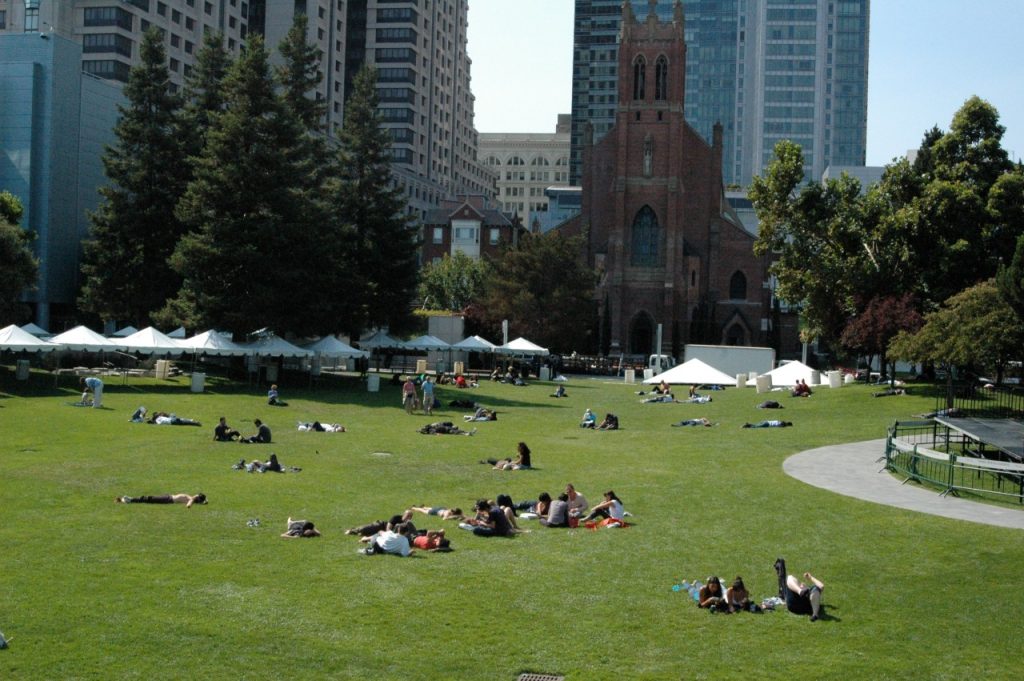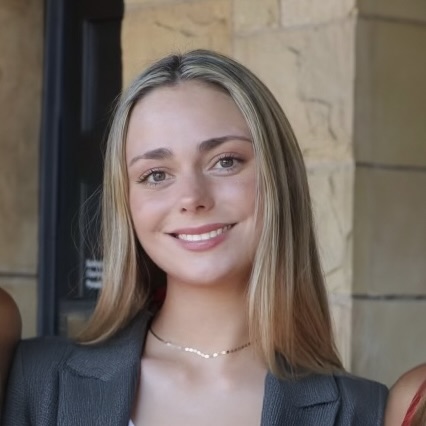
Curious San Franciscans gather around a small sapling, enraptured by a tree tour provided by event staff. A slight breeze blows through sunny Yerba Buena Gardens. Upbeat music plays through the speakers, with a DJ set at the center of the event. “I saw some people dancing! Let your body move and groove,” calls one volunteer. Children play badminton, couples sit on the sunlit grass, and a series of white tents feature local businesses. A volunteer offers a passerby a “Bingo” card, encouraging them to stop by various booths for a prize. This isn’t just another eco-fair – thoughtful and well-meaning, perhaps a little predictable. It’s a celebration: lively, inviting, and full of energy.
Yerba Buena Gardens, a public park and community space, has increasingly become a cultural hub for San Francisco. The San Francisco Environment Department (SFED) used the space to host its Green Business Expo and Earth Day Festival on April 19 for Climate Week. Under the Green Businesses Program, companies work with the SFED to mark environmental wins. The event allows these businesses to showcase their sustainability practices, attract new customers, and show locals the many ways everyday choices can support the planet.
Business owners from companies such as The Daisy Refillery, Andytown Coffee Roasters, and the Green Terra Cleaning Service are featured. Products range from baked goods to handmade art pieces to educational programs. “Environmental issues have impacted me personally,” explains one business owner, Nicole Album, when describing why she chose to become a sustainable business. Album’s booth has a steady stream of visitors, awed by her nature-inspired art pieces, one of them featuring a girl climbing a string of daisies.
Events like this one play a key role in helping green businesses gain visibility. One SFED employee, Kevin Kumataka, put the Expo’s call-to-action simply: “Support green businesses and vote with your dollar every single day.” Kumataka emphasized that supporting small, sustainable businesses is one tangible action citizens can take to make a positive impact on our planet, and the city, even amid political uncertainty. San Francisco residents can find these green businesses by looking for an identifying sticker on local establishments.
The work to green San Francisco doesn’t stop at the shops’ front doors. The Yerba Buena Conservancy, a nonprofit that stewards the park, also intends to make San Francisco’s downtown area more accessible and welcoming to the local community, in part by keeping the city streets cool by introducing more green spaces. “We suffer from the ill effects of heat island here because of the concrete,” explains Seve Ghoose, executive director for the Conservancy. In response, the Conservancy is planting more trees in the surrounding area. Many of the trees are fruit-bearing to encourage urban farming. Locals, many of whom live below the poverty line, are encouraged to take fruit, bring it home, and eat it, free of charge.
Meanwhile, the tree tour continues around the event, stopping at every plant. Many of the saplings were planted recently, representing hope for the future of San Francisco’s downtown. A volunteer eagerly answers the audience’s questions, detailing facts about the local fungi and weather patterns. His ever-growing audience of old and young locals signals something greater than simple plant-related curiosity: A community that wants to grow towards a greener future.

